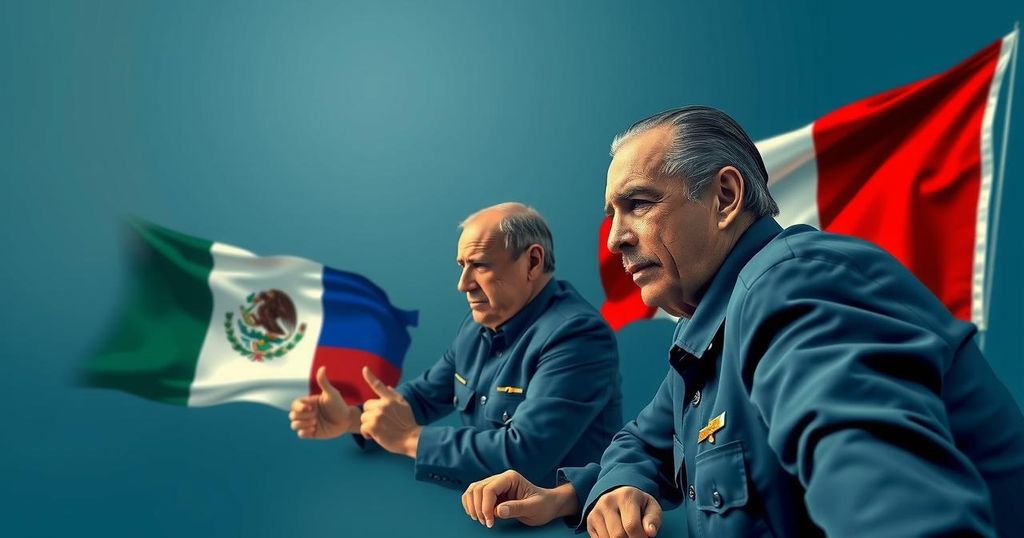Mexico has become Cuba’s new benefactor, stepping into a role once filled by the Soviet Union and Venezuela, offering crucial support despite the Cuban regime’s repressive history. Under President Claudia Sheinbaum, Mexico guarantees extensive oil shipments and other aid to Cuba while grappling with violence at home and democratic erosion. The implications of this relationship raise significant concerns about moral complicity in supporting dictatorship rather than aiding the Cuban populace.
In recent years, Mexico has emerged as a significant supporter of Cuba’s long-standing communist regime. Historically, Cuba relied heavily on the Soviet Union and later Venezuela, receiving billions in aid. After Venezuela’s economy deteriorated, Mexico took on the role of Cuba’s new benefactor, providing essential resources like food and oil to sustain the struggling dictatorship. This shift is alarming, especially considering Mexico’s position as a vital economic partner to the United States. In 2023, Mexico’s government, under President Claudia Sheinbaum, indicated its commitment to support Cuba by guaranteeing a substantial supply of oil. This move is perceived as a troubling endorsement of a regime that has maintained political prisoners and lacked democratic processes for over six decades. While Mexico touts its solidarity with Cuba, it fails to address the moral implications of supporting a regime that represses its citizens. Amidst escalating violence within its borders, Mexico seems to prioritize its relationship with Cuba over addressing pressing domestic issues. The current presidential administration has even used the migration crisis as leverage to seek U.S. collaboration regarding Cuba. Despite the economic and humanitarian crises affecting both Mexico and Cuba, the Mexican government’s significant donations have not resolved the impoverishment sustained by the Cuban people. Moreover, Sheinbaum’s administration has supported democratic eroded by implementing reassured measures regarding transparency and security, deepening concerns about the implications of such actions. Overall, the support that Mexico extends to Cuba is deeply troubling, as it seemingly aligns with the oppressive practices witnessed in Cuba, Venezuela, and Nicaragua, undermining the democratic values that Mexico purports to uphold. Rather than using its influence to promote reform and liberation for the Cuban people, the Mexican government is complicit in maintaining an authoritarian regime.
The historical relationship between Cuba and external supporters such as the Soviet Union and Venezuela outlines the trajectory of Cuba’s continued dependence on foreign aid. Cuba’s communist regime has received over $64 billion from these nations, which have facilitated its persistence despite internal failures. The current geopolitical landscape sees Mexico, a significant U.S. trading partner, stepping into this role as Venezuela falters. Such a shift raises complex questions about the international implications of Mexico’s aid to Cuba, particularly concerning human rights and democracy.
In summary, Mexico’s support for Cuba’s dictatorship reflects a troubling trend of prioritizing external aid over democratic integrity. This decision not only emphasizes Mexico’s complicity in perpetuating oppressive regimes but also highlights its neglect of pressing domestic challenges. The future of relations between Mexico, Cuba, and the U.S. remains uncertain, as issues of governance and human rights take center stage in an increasingly complicated regional dynamic.
Original Source: thehill.com






